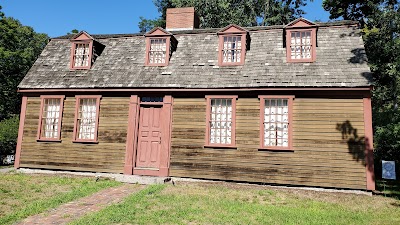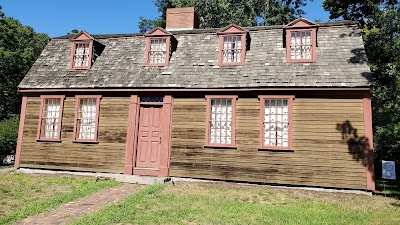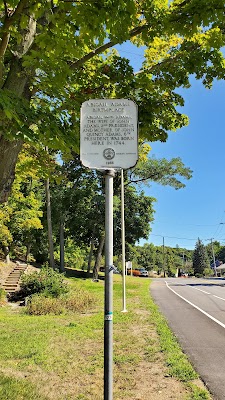Rabaul Historical Society Museum (Rabaul Historical Society Museum)
Overview
Located in the breathtaking region of Bougainville, Papua New Guinea, the Rabaul Historical Society Museum is a remarkable repository of history, culture, and wartime memories. This museum stands as a testament to the area's tumultuous yet rich history, offering profound insights into the events that have shaped both the region and its people.
Nestled in the historic town of Rabaul, which has witnessed significant historical events—particularly during World War II—the museum provides visitors with a unique opportunity to explore meticulously preserved artifacts, photographs, and documents. Here, the past comes alive through the personal stories of resilience and the enduring spirit of the local communities.
One of the museum's central themes is the region's strategic importance during World War II. Rabaul served as a crucial Japanese military base, making it a primary target for Allied forces. The exhibits include detailed maps, military gear, and personal belongings of soldiers, vividly illustrating the intense battles and daily struggles faced during the war. These relics are not merely historical items; they symbolize the courage and sacrifice of those who lived through this turbulent time.
In addition to its military focus, the Rabaul Historical Society Museum also explores the geological marvels of the Gazelle Peninsula, known for its volcanic activity. The museum provides fascinating insights into the eruptions, especially the catastrophic event in 1994 that led to the town's evacuation. Engaging displays and informative texts allow visitors to learn about the region's volcanic origins and the natural phenomena's impact on the local population and landscape.
A visit to the museum also offers an exploration of cultural heritage. Exhibits include traditional artifacts such as pottery, tools, and ceremonial items, revealing the lives and customs of the indigenous Tolai people. This collective memory highlights Papua New Guinea's rich cultural tapestry and underscores the importance of preserving these traditions in the face of modernization.
The museum is not limited to static exhibits; it also organizes educational programs and events that engage both the local community and international visitors. These programs often include guided tours, lectures, and interactive sessions with historians and archaeologists, fostering a deeper connection to the area's history. Special events are tailored to celebrate significant anniversaries and milestones in Rabaul’s history, ensuring that each visit is a unique experience.
Moreover, the museum's setting is as captivating as its exhibitions. The infrastructure features remnants of colonial architecture that harmoniously blend with modern efforts to preserve history. Visitors can stroll the grounds, absorbing the ambiance that resonates with echoes of bygone eras. A small yet well-stocked gift shop offers souvenirs reflecting the cultural and historical essence of Rabaul.
A noteworthy aspect of the museum is its role as a hub for historical research. Many historians and researchers from around the globe visit not just as tourists but as academics eager to delve into its rich archives. The museum plays a crucial role in contemporary studies of wartime history and volcanic activity, contributing valuable information to both global historical and geological communities.
In summary, a visit to the Rabaul Historical Society Museum is a powerful journey through time. Whether you're a history enthusiast, a geology buff, or simply a traveler seeking to understand more about your destination, this museum offers a comprehensive and touching narrative of Rabaul’s past and present. It is more than just a collection of objects; it's a living chronicle of the human experience etched into the landscape of Papua New Guinea.
This museum provides an enriching experience that educates and inspires, making it an essential stop for any traveler interested in grasping the historical depth and cultural richness of Bougainville and Rabaul. From the echoes of war to the power of nature and the heritage of indigenous communities, the Rabaul Historical Society Museum encapsulates the enduring spirit of a region that has weathered numerous storms, both literal and figurative.







